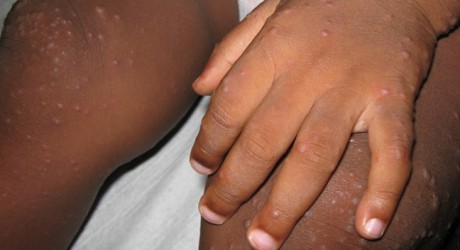By Caribbean Medical News Staff
The Dept. of Education Services received a report recently that nineteen students at West End Primary School was diagnosed as having Hand, Foot and Mouth disease. This viral disease occurs most commonly in children less than 10 years of age and most often in summer and fall months.
The Public Health Department was called in to assist with the outbreak and has advised that the school should be completely sanitized. To facilitate this process, West End Primary School will be closed from Wednesday September 30th and re-open on Monday, October 5th.
At this time there are no known cases at Creek and Spot Bay Primary School.
Parents are being asked to seek medical attention if their child/children present with symptoms and to keep them home until they recover to minimize spreading the disease to other students.
About Hand, foot and mouth disease
Hand, foot, and mouth disease is a common viral illness that usually affects infants and children younger than 5 years old. However, it can sometimes occur in adults. It usually starts with a fever, reduced appetite, sore throat, and a feeling of being unwell (malaise). One or two days after the fever starts, painful sores can develop in the mouth (herpangina). They begin, often in the back of the mouth, as small red spots that blister and can become ulcers. A skin rash with red spots, and sometimes with blisters, may also develop over one or two days on the palms of the hands and soles of the feet; it may also appear on the knees, elbows, buttocks or genital area.
Some people, especially young children, may get dehydrated if they are not able to swallow enough liquids because of painful mouth sores.
Not everyone will get all of these symptoms. Some people, especially adults, may show no symptoms at all, but they can still pass the virus to others.
There is no vaccine to protect against the viruses that cause hand, foot, and mouth disease.
A person can lower their risk of being infected by
• Washing hands often with soap and water, especially after changing diapers and using the toilet.
• Cleaning and disinfecting frequently touched surfaces and soiled items, including toys.
• Avoiding close contact such as kissing, hugging, or sharing eating utensils or cups with people with hand, foot, and mouth disease.
If a person has mouth sores, it might be painful to swallow. However, it is important for people with hand, foot, and mouth disease to drink enough liquids to prevent dehydration (loss of body fluids). If a person cannot swallow enough liquids, they may need to receive them through an IV in their vein.
Treatment
There is no specific treatment for hand, foot, and mouth disease. However, some things can be done to relieve symptoms, such as
• Taking over-the-counter medications to relieve pain and fever (Caution: Aspirin should not be given to children.)
• Using mouthwashes or sprays that numb mouth pain
People who are concerned about their symptoms should contact their health care provider.














